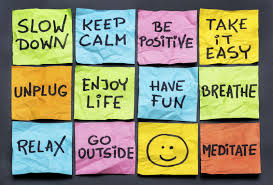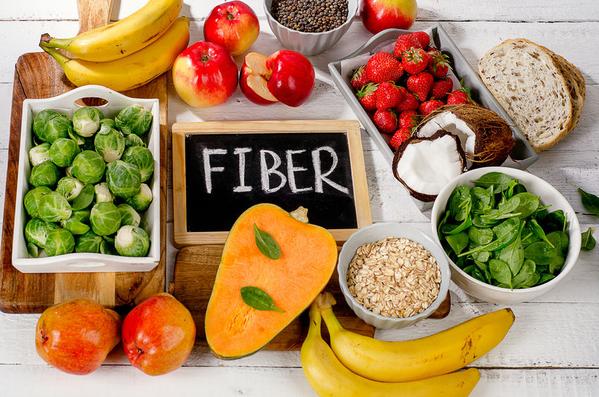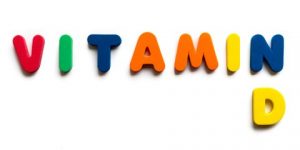What is Blood Pressure?
Blood pressure (BP) is the heart pumping blood through blood vessels creating pressure on the walls of blood vessels. (Wikipedia)
About 1 in 3 US adults (about 75 million people) have high blood pressure.
Therefore, it should not be a surprise that “How to lower blood pressure” topped the list of most-searched health-related questions on Google in 2019.
Blood Pressure is usually silent.
What is normal blood pressure?
Normal Blood Pressure should be below 120/80
Stage 1 Blood Pressure (Pre Hypertension): above 130/80 and below 140/90
Stage 2 Blood Pressure (Hypertension) > 140/90
BP is recorded as two numbers with the top number called the systolic blood pressure (heart at work) and the bottom number is diastolic blood pressure (heart at rest).
In people with mildly elevated BP or stage 1 hypertension, lifestyle or “natural” changes may help lower the BP; However, in people with higher BP or other health risks (eg, diabetes or chronic kidney disease), drug therapy should be used first to quickly and effectively control the BP. Once BP is well controlled, lifestyle changes can still be tried. If they are successful, then a reduction of medications may be possible. Please work with your doctor.
How to lower blood pressure
While drugs are one way to treat high blood pressure, there are many other natural techniques that can help. Eating a healthy diet with less sodium and more potassium, losing weight, getting more exercise and relieving stress can all help lower blood pressure, according to Johns Hopkins Medicine.
The health benefits of controlling blood pressure include reducing the risk of heart attack, stroke and even dementia.

Here are 17 ways to help Lower Blood Pressure Naturally
1. Lose the extra pounds and watch your waistline

Blood pressure often increases as weight increases. Being overweight can also cause disrupted breathing while you sleep (sleep apnea), which also raises your blood pressure.
Weight loss is one of the most effective lifestyle changes in controlling blood pressure. Losing even a small amount of weight if you’re overweight can help reduce your blood pressure. In general, you may reduce your blood pressure by about 1 mm Hg with each kilogram (about 2.2 pounds) of weight you lose.
In general:
- Men are at risk if their waist measurement is greater than 40 inches (102 centimeters).
- Women are at risk if their waist measurement is greater than 35 inches (89 centimeters).
2. Exercise regularly

Regular physical activity — such as 150 minutes a week, or about 30 minutes most days of the week — can lower blood pressure by about 5 to 8 mm Hg if you have high blood pressure. It’s important to be consistent because if you stop exercising, your blood pressure can rise again.
Some examples of aerobic exercise you may try to lower blood pressure include walking, jogging, cycling, swimming or dancing. Strength training can also help reduce blood pressure. Aim to include strength training exercises at least two days a week. Talk to your doctor about developing an exercise program.
3. Eat more Potassium
Potassium is an important mineral.

Potassium helps your body get rid of sodium and lower pressure on your blood vessels.
To get a better balance of potassium to sodium in your diet, focus on eating fewer processed foods and more fresh, whole foods.
Foods that are particularly high in potassium include:
- Vegetables, especially leafy greens, tomatoes, potatoes, and sweet potatoes
- Fruit, including melons, bananas, avocados, oranges, and apricots
- Dairy, such as milk and yogurt
- Tuna and salmon
- Nuts and seeds
- Beans
Potassium supplements, 40 to 80 mEq/day, can possibly lower blood pressure (BP), but this effect is largely lost in patients who are on a low-sodium diet.
Bottom Line: Eating fresh fruits and vegetables, which are rich in potassium, can help lower blood pressure
4. Reduce Sodium in your diet

Even a small reduction in the sodium (salt) in your diet can reduce blood pressure by about 5 to 6 mm Hg if you have high blood pressure.
The effect of sodium on blood pressure varies among people. In general, limit sodium to 2,300 milligrams (mg) a day or less. However, a lower sodium intake — 1,500 mg a day or less — is ideal for most adults.
The Dietary Approaches to Stop Hypertension trial (DASH) concluded that the combination of a low-sodium and DASH diet (high fruits/vegies/low fat) resulted in an overall reduction of 8.9 and 4.5 mm Hg in systolic and diastolic BPs.
To decrease sodium in your diet, consider these tips:
- Read food labels. If possible, choose low-sodium alternatives of the foods and beverages you normally buy.
- Eat fewer processed foods. Only a small amount of sodium occurs naturally in foods. Most sodium is added during processing.
- Don’t add salt. Just 1 level teaspoon of salt has 2,300 mg of sodium. Use herbs or spices to add flavor to your food.
WHY SHOULD I REDUCE SALT IN MY DIET?
Reducing salt can help prevent the collection of fluid in the lower legs or abdomen. People with chronic kidney disease and heart failure MUST control sodium intake to prevent volume overload, which increases blood pressure and causes swelling.
Switching from a high-salt to a low-salt diet can reduce blood pressure in people who even have normal blood pressure. When the sodium intake is lowered from 4000 to 2000 mg per day, blood pressure falls by 2 to 3 mmHg.
5. Limit the amount of Alcohol you drink

Alcohol can be both good and bad for your health. Drinking alcohol in moderation — one drink a day — can potentially lower blood pressure by about 4 mm Hg.
One drink equals 12 ounces of beer, 5 ounces of wine or 1.5 ounces of 80-proof liquor.
But the protective effect is lost if you drink too much alcohol.
Drinking more than moderate amounts of alcohol can actually raise blood pressure by several points. It can also reduce the effectiveness of blood pressure medications.
6. Quit Smoking

Each cigarette you smoke increases your blood pressure for many minutes after you finish. Stopping smoking helps your blood pressure return to normal. Quitting smoking can reduce your risk of heart disease and improve your overall health.
7. Cut back on Caffeine

The role caffeine plays in blood pressure is still debated. Caffeine can raise blood pressure up to 10 mm Hg in people who rarely consume it. But people who drink coffee regularly may experience little or no effect on their blood pressure.
8. Reduce your Stress
 Photo Credit: Harvard health.com
Photo Credit: Harvard health.com
Chronic stress may contribute to high blood pressure. More research is needed to determine the effects of chronic stress on blood pressure.
Occasional stress can contribute to high blood pressure if you react to stress by eating unhealthy food, drinking alcohol or smoking.
If you can’t eliminate all of your stressors, you can at least cope with them in a healthier way. Try to:
- Change your expectations. Avoid trying to do too much and learn to say no. Understand there are some things you can’t change or control, but you can focus on how you react to them.
- Focus on issues you can control and make plans to solve them. If you are having an issue at work, try talking to your manager. If you are having a conflict with your kids or spouse, take steps to resolve it.
- Avoid stress triggers. Try to avoid triggers when you can. For example, if rush-hour traffic on the way to work causes stress, try leaving earlier in the morning, or take public transportation. Avoid people who cause you stress if possible.
- Make time to relax and to do activities you enjoy. Take time each day to sit quietly and breathe deeply. Make time for enjoyable activities or hobbies in your schedule, such as taking a walk, cooking or volunteering.
- Practice gratitude. Expressing gratitude to others can help reduce your stress.
9. Cut out added Sugar and refined Carbs

There’s a growing body of research showing a link between added sugar in your diet and high blood pressure.
In the Framingham Women’s Health Study, women who drank even one soda per day had higher BP levels than those who drank less than one soda per day.
Another study found that having one less sugar-sweetened beverage per day was linked to lower blood pressure.
And it’s not just sugar – all refined carbs, such as the kind found in white flour, convert rapidly to sugar in your bloodstream and may cause problems.
Some studies have shown that low-carb diets may also help reduce blood pressure.
One study on people undergoing statin cholesterol therapy found that those who went on a six-week, carb-restricted diet saw a greater improvement in blood pressure than people not on the diet.
Bottom Line: Refined carbs, especially sugar, may raise blood pressure. Some studies have shown that low-carb diets may help reduce your levels.
10. Eat more Berries

Berries are full of polyphenols, natural plant compounds that are good for your heart.
One small study had middle-aged people eat berries for eight weeks. Participants experienced improvements in blood pressure.
Another study assigned people with high blood pressure to a low-polyphenol diet or a high-polyphenol diet containing berries, chocolate, fruits and vegetables. Those consuming berries and polyphenol-rich foods experienced improved blood pressure.
Bottom Line: Berries are rich in polyphenols, which can help lower blood pressure and the overall risk of heart disease.
11. Try Meditation or Deep Breathing Exercises

Meditation and deep breathing are both stress reduction techniques that are thought to activate the parasympathetic nervous system. This system helps the body relax, slowing the heart rate and lowering blood pressure.
There’s a lot of research in this area, with studies showing that meditation and deep breathing appear to have benefits for lowering blood pressure.
In one study, participants were asked to either take six deep breaths over the course of 30 seconds or to simply sit still for 30 seconds. Those who took breaths lowered their blood pressure more than those who just sat.
Bottom Line: Both meditation and deep breathing can activate the parasympathetic nervous system, which helps slow your heart rate and lower blood pressure.
12. Eat Calcium-Rich Foods
 experiencelife.com
experiencelife.com
People with low calcium intake often have high blood pressure.
While calcium supplements haven’t been shown to lower blood pressure, calcium-rich diets do seem linked to healthy BP levels.
In addition to dairy, you can get calcium from collard greens and other leafy greens, beans, sardines, and tofu.
The effect of calcium supplementation on BP is just too small to recommend the use of calcium supplements for hypertension. Moreover, in a community-based, prospective, longitudinal cohort study, a high intake of calcium was associated with higher death rates from all causes and cardiovascular disease [25].
Bottom Line: Calcium-rich diets are linked to healthy blood pressure levels. Get calcium through dark leafy greens and tofu, as well as dairy, not through supplements.
13. Eat Magnesium-rich foods
Magnesium is an important mineral that helps blood vessels relax.

While magnesium deficiency is pretty rare, many people don’t get enough magnesium.
Some studies have suggested that getting too little magnesium is linked with high blood pressure, but evidence from clinical studies has been less clear.
So eating a magnesium-rich diet is a recommended way to ward off high blood pressure.
You can get magnesium into your diet with vegetables, dairy products, legumes, chicken, meat and whole grains.
Bottom Line: Magnesium is an important mineral that helps regulate blood pressure. Find it in whole foods, such as legumes and whole grains. Avoid magnesium supplements.
14. Eat Dark Chocolate

Small amounts of chocolate may help your heart because dark chocolate is rich in flavonoids, plant compounds that cause blood vessels to dilate, which lowers blood pressure. The effect of cocoa on BP was evaluated in a 2012 Cochrane meta-analysis. It concluded that flavanol-rich cocoa products reduced both systolic and diastolic pressure compared (mean reduction, 1.8/1.8 mm Hg).
15. Eat a High-fiber diet
 Photo: Michaels-naturopathic-program
Photo: Michaels-naturopathic-program
A higher intake of dietary fiber is associated with decreased BP. As an example, a 2005 meta-analysis found an average fall of 1.2/1.3 mmHg BP with 11.5g/day of fiber intake [26].
16. Natural Supplements
Some natural supplements may also help lower blood pressure. Here are some of the main supplements that have evidence behind them:
- Aged garlic extract: Aged garlic extract has been used successfully as a treatment for lowering blood pressure.
- Whey protein: A 2016 study found that whey protein improved blood pressure and blood vessel function in 38 participants.
- Fish oil: Long credited with improving heart health, fish oil may modestly benefit people with high blood pressure.
- Hibiscus: Hibiscus flowers make a tasty tea. They’re rich in anthocyanins and polyphenols that are good for your heart and may lower blood pressure.
17. Monitor your blood pressure at home and see your doctor regularly
Home monitoring can help you keep tabs on your blood pressure, make certain your lifestyle changes are working, and alert you and your doctor to potential health complications. Blood pressure monitors are available widely and without a prescription.

References
https://www.medicalnewstoday.com/articles/318716.php#fifteen-remedies



